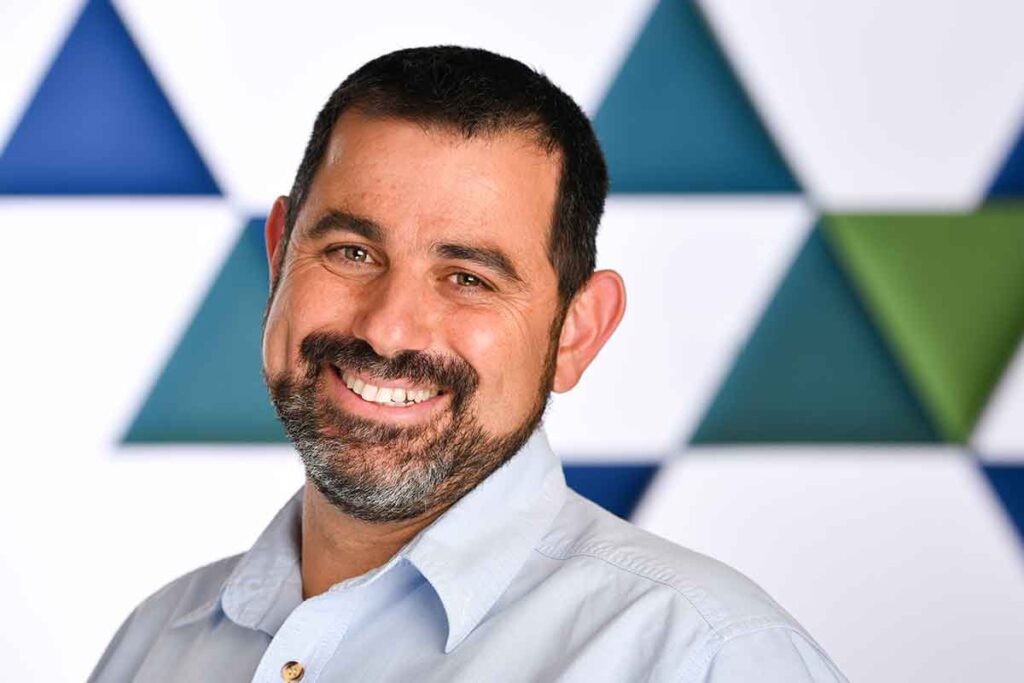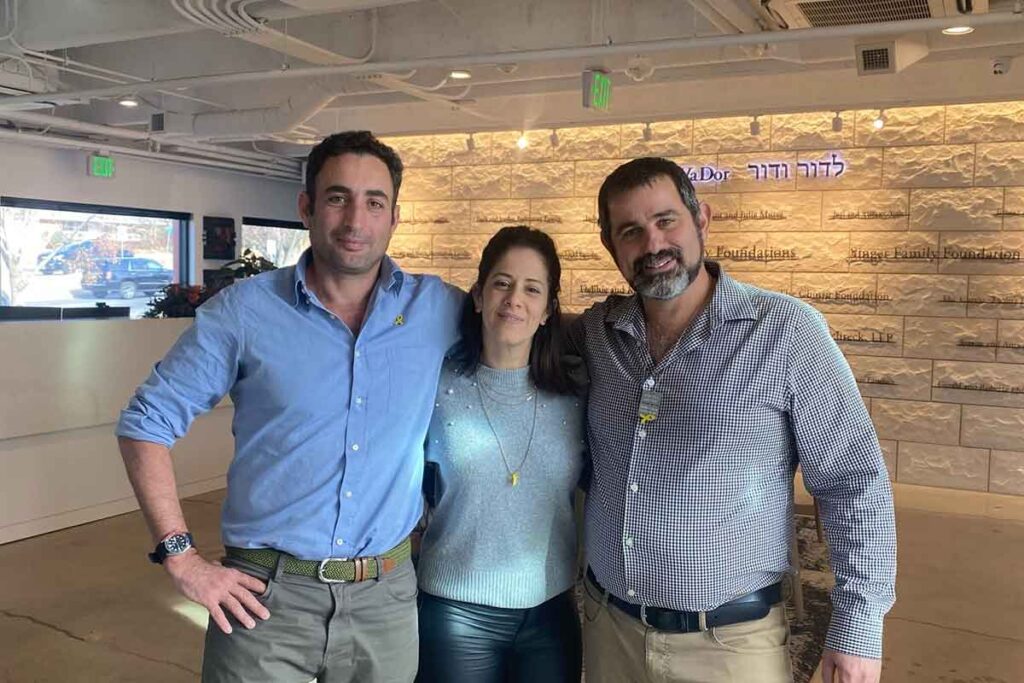Itai Divinsky, JEWISHcolorado’s Shaliach from 2019-2023, recently visited Colorado on a national fundraising campaign in his position as Director of Resource Development for Nitzana, an inclusive educational community in Southern Israel. Divinsky received approval for special leave from his duties, to which he has now returned, as a tank commander in the IDF Reserve Forces serving inside Gaza to travel to the U.S. to raise money for Nitzana. On his visit to Denver, we talked to him about life in Israel as the war enters its second year.
How are you doing? You have been on a whirlwind trip, so I’m guessing you are tired.
 I think I am perpetually tired, and to be truthful, sometimes my head is spinning. Two weeks ago, I was sitting in a tank in Gaza on Tuesday. By Wednesday, I was home having dinner with my family. By Thursday, I was on an airplane, and by Friday, I was in New York to raise funds for Nitzana, so I have been moving from one world into completely different worlds.
I think I am perpetually tired, and to be truthful, sometimes my head is spinning. Two weeks ago, I was sitting in a tank in Gaza on Tuesday. By Wednesday, I was home having dinner with my family. By Thursday, I was on an airplane, and by Friday, I was in New York to raise funds for Nitzana, so I have been moving from one world into completely different worlds.
The war has entered its second year. Would it be fair to say that everyone living in Israel might also say they are perpetually tired?
Yes, I think they would say that. But the real heroes are the spouses who are left behind while the war is being waged. Yes, we are on the front line, but the spouses have to stay at home and take care of the family by themselves—with only constant worry to keep them company—and go to work to keep Israel going. That is what makes this a very difficult time.

In general, how is your family—and other families—doing during this difficult time?
Parents do not sleep well, and children missing their parents who are away at war cannot sleep. When I left the front lines to come to the United States, my wife told me, “Now you are going to America, so you cannot help me around the house, but at least I will sleep well because I know that you are not in danger.”
Your family lives in Ramat HaNegev. Is life any easier being in the south of Israel?
There is some normalcy in Southern Israel, but things are never really normal. You open the newspaper and you see what is happening in Northern Israel. You see the names of those who have fallen every day, so your sense of normalcy is interrupted every few minutes. And sometimes, you feel guilty if you allow yourself to feel that things are normal.
How much time have you been away from your family since the start of the war?
Because I had been away serving as JEWISHcolorado’s Shaliach, there was a slight delay before I was called up to the Reserves. Since then, I have been away from my family for about one-third of the time. I have other friends who were called up immediately after October 7, and they have been gone for a total of seven months now.

Director of Nitzana Avi Cohen, Nelly Ben Tal, and Itai Divinsky at JEWISHcolorado
In this situation, you must feel like you are in a strange kind of non-stop limbo, never knowing what the next day will bring.
It is impossible to plan ahead because the war is always affecting us. Psychologically, you need stability. Right now, we don’t have that. I have friends who plan a family vacation, but they don’t tell their children until the day before they leave because they always know there is a chance it will be canceled.
On the other hand, you can’t stop taking your children on vacation!
That is the challenge—trying to give children the childhood they deserve despite the war. The war drags on, but you can’t stop their childhood. They are losing a little of it every day, so my wife and I have consciously made a decision to start doing recreational activities like going camping as a family.
Is there anything you want to say about the current political climate in Israel?
Two weeks ago, I left my tank at 8:00 p.m. to make this trip. I was tired, covered in dirt, and driving home alone when I heard on the radio that the Defense Minister had been fired. That was a blow. I thought to myself, “Why did they take him out? Who are they trying to please with this decision?” When you are at war, you may be doing things that are not pleasant, but you have a deep sense of belief in the future of Israel. Still, the people at the top are not making it easy for us.

Itai Divinsky and JEWISHcolorado Director of Campaign Operations & Digital Philanthropy Jason Oruch in Washington, D.C.
Through all of this, what gives you hope?
My wife and my family give me hope. When I returned to the Reserves, my wife said, “Do what you have to do, take care of yourself, and come back in one piece.” Through all the difficulty, she sees this as a joint effort—something we are doing together.
Where else do you find hope?
When I get to the base, the other reservists give me hope. They come from very different backgrounds. The driver of my tank is a 40-year-old rabbi, Modern Orthodox, with seven children. On many things we disagree, but we work together 24/7 in the tank as a team and there is no question that we have a very strong bond. He would tell you the same thing.
On this trip, you attended the Jewish Federations of North America (JFNA) General Assembly and the Jewish National Fund Conference, and you were raising money for Nitzana in New York, Washington, D.C., Dallas, Denver, and Boston. Why is there a greater need than ever for this fundraising?
Even when we are not at war, we have to raise funds to support Nitzana. Now, during the war, the government is changing its budgeting priorities, so we need to raise even more dollars from private donations. Nitzana is a model educational community where Israelis from all different backgrounds live, study, and grow together. It’s a place that gives hope for the Israel we know and love—the Israel that is Jewish, democratic, and inclusive. It’s an inspirational place, and now more than ever, we need to remember that amazing things are still happening in Israel.






